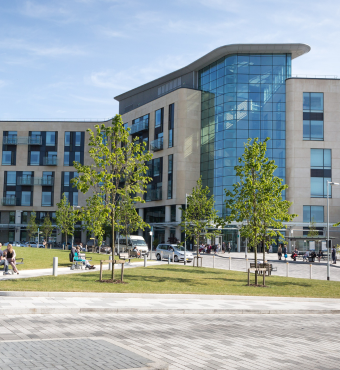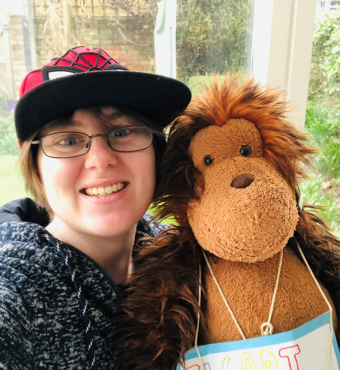
We have formally adopted the Social Model of Disability, a pivotal step in our journey towards greater inclusion. This model reframes disability not as a result of impairment or difference within an individual, but as a result of societal barriers that hinder full participation. By adopting this framework, we commit to breaking down those barriers and ensuring our services and workplace are accessible to all.
Kelvin Blake, one of our Non-Executive Members on the North Bristol NHS Trust (NBT) Board, shares his thoughts on the Social Model of Disability and what this means to him:
“We need to do all that we can to make life easier for disabled people to make a full contribution and I’m really pleased that at North Bristol NHS Trust, we have done a lot of work around supporting disabled people through the staff network and our work around the Reasonable Adjustment Passport and other inclusive activities. So we have got more to do, but I am excited for the future.”
You can watch Kelvin's full video below.
For this year’s Disability History Month, we have been raising awareness of The Social Model of Disability. We held workshops to help our staff further understand the social model and what this means for disabled people.
Additionally, our partners from the West of England Sight Loss Council joined us for our first Accessible Information Standard Roadshow workshop. They shared their experience and highlighted the importance of accessibility.
We also heard directly from our staff. Sophie Evans, our Staff Experience Coordinator, discusses the importance of the social model and what it means in her blog below.
What the Social Model of Disability means to Sophie
Hi I’m Sophie. I work in the Staff Experience team and help support our amazing 12,000+ staff with their health and wellbeing and having the best experience possible at North Bristol NHS Trust.
I have Autism which means my brain works differently. This might be challenging for you because it is different to how yours works, and it isn’t a problem: it’s just different.
When people have used the Medical Model of Disability in the past, the message has been ‘You are the problem’ and ‘You need to adapt and fit without any adjustments and adaptations’. This has had long term negative impacts on my mental health, self esteem and self confidence which is one of the reasons why the Social Model of Disability is important.
Using the Social Model of Disability in the Staff Experience team
We have our team check in tree where we are all a cartoon characters and each morning, we put our character on how we are feeling. This helps me as I find it hard to work out how people are feeling and if I need to give them time to drink their coffee before asking complex questions or asking them to pose with a health and wellbeing poster for social media.

ELGARI is my support monkey.
Monkeys are my favourite thing in the whole world.
He helps me stay calm and explain to neurotypical people that I’m autistic and my brain works differently. He helps me communicate and interact with staff and he likes to give wellbeing hugs. He also enjoyed his weekly spa experiences in the bath during COVID to help him stay clean and extra fresh.
Using the Social Model of Disability, ELGARI often gives virtual hugs on MS teams calls when he is hanging out with his monkey mates at home. This helps me communicate and interact when working remotely.
In the summer months, my team are great at using the Social Model of Disability. Due to my Autism, my sense of temperature and thermoregulation is negatively affected by hot weather. To most people 20 degrees centigrade is nice sunny weather but to me it feels like my skin is on fire and I get very hot, very quickly.
To accommodate my needs, my team allow support me to work from home more often and when I am at NBT, my team are great at reminding me to take breaks, drink my water and visit and bring in team ice creams for us all to enjoy and stay cool.
Disability History Month has been an opportunity to celebrate the contributions and achievements of disabled people and to highlight the importance of the Social Model of Disability, which we are proud to be committed to at NBT.
